map the trail ahead,
move with confidence
If you've got a specific idea which likely involves software then that's where mapping comes in. There's no need to wing it, get going with a near and long-term map (covering product & tech) to guide your choices. Learn how to work with product teams, scope your target architecture and tell a convincing story for how you'll realise it that'll bring the humans you need on the journey with you.
If you're interested in what mapping enables, grab time to talk or just send me an email.
"When you're in the weeds and there is technical complexity there is no one I trust more than Chris to help find a way through."
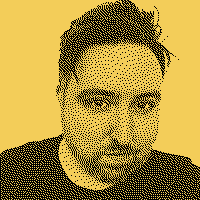 Ray Mosley
Ray MosleyHead of Design
@ eBay
"I had the benefit of Chris' insight, experience, and laser focus at the start of a deep dive into a platform architecture project for a well-financed fintech disruptor. We were able to swiftly sort the chaff from the grain. We rapidly located gaps I am sure I would not have found without his help, we even gained senior buy-in and traction on some of the hidden intricacies of the project."
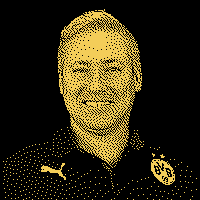 Jeremy Armes
Jeremy ArmesDirector of Digital Platforms & Data
@ Planet
"Chris Oram is a legend and helped me massively at the beginning to get clearer on how I should develop Wildya. Can highly recommend to work with him, if you have the opportunity."
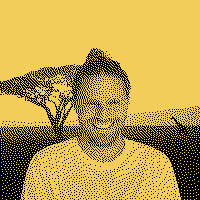 Oliver Dauert
Oliver DauertFounder
@ Wildya
If you're a non-technical founder you may recognise some of these early-stage barriers.
- You might have a clear vision but you're getting push back that it's too big or might take too long to achieve.
- All you want to know is what it'll take to make an MVP but you're getting wildly differing (perhaps overly low-level or acute) answers.
- You may be missing out on funding chances because you can't demonstrate the 'traction' needed.
- You've been waiting for a while now for a technical co-founder/unicorn so you can get started or unlock the next level.
Map the trail ahead to get the most out of your efforts, reduce risk and identify a real meaningful impact.
- Break down the big vision into smaller achievable steps that builds confidence and aligns you, your team and key stakeholders.
- Provide a clear map of each stage or iteration you need to hit and how it will contribute to the product.
- Know exactly what resources and people you're going to need to unlock each stage, have a realistic sense of scope and cost.
- Know how to kick-off your first tech team so they can do good work, do it with empathy and maintain the momentum.
How mapping works ⛰
Over the course of 2 weeks we'll work consult together via a series of one-to-one online interactive workshops, backed by independent async work and communication, to validate, de-risk and best prepare for an upcoming software project.
This is designed for early-stage non-technical founders who are trying to get a sense of exactly what they need to make. To equip them with the tools and techniques needed to incubate their software project and seed their own development capability. So ultimately they can own the compute.
Step 1 - Ideate and prove it
Go beyond that initial good theory or idea. Figure out how to prove it and point to validation from a market, community, product and tech perspective, before going any further. Have the actual conversations and lead with evidence-based research to show what's really needed, reveal where opportunity lies and don't wait to find out if it can be practically delivered technically. Together we'll design key proof-of-concepts and experiments that you can roll out in weeks not months that gather meaningful results with a process you can then continue to sustain yourself.
Step 2 - Get strategic
Taking the outputs from step 1. We will go meta and refine the vision together (articulating exactly what it is you want to happen), to setting a strategy (defining the value we're going to provide that is not currently provided elsewhere) that'll enable it. We'll create practical and useful product road-maps trail-maps supported by the necessary lower-level dependencies and technology detail to keep things guided and on track.
Step 3 - Prepare to develop
Get equipped and prepare to execute the strategy. We'll outline the target sustainable architecture, team shape and product skills you'll need to move into development. This includes immediate tech recommendations, full-stack blueprints, wireframes, prioritised backlog, roles required, hiring approach and a breakdown of the forecasted costs you can expect.
Step 4 - Share and align
Tech is hard enough without adding poor communication into the mix. Good comms fuels the team, creates opportunity for collaboration and if done transparently, builds trust. You'll end up with a deck that consolidates all our work together. It can then be cut for pitching, funding, recruiting and marketing version needs. Setup an ongoing knowledge repository and onboarding process that'll bring new team members up to speed quickly. We'll spend time going through best practices for how to remotely engage and work effectively with a good tech team.
"Chris is a tech solutions architect in the truest sense; you tell him what is needed and he'll know the most effective & efficient way to make it happen."
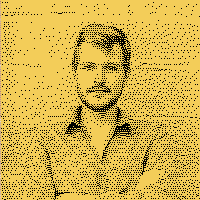 Will Mercer
Will MercerFounder
@ Zag
"Chris orchestrated a radical turn in our direction; we became primed to move strategically and tactically based on business objectives, using the right approach and technologies."
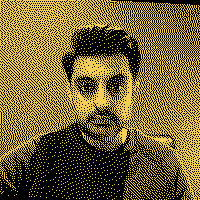 Arafat Sadiq
Arafat SadiqCTO
@ MyPulse
"I enjoyed Chris' thoughtfulness in interacting with the team, and his meticulous approach to analysing user needs, along with deconstructing the different aspects of the products."
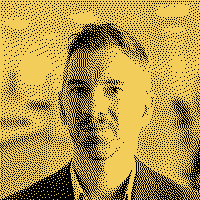 Dave duVerle
Dave duVerleFounder
@ Tenko.ai
Pricing & 100% guarantee
I don't do estimates. This is a fixed price consulting programme.
€3,500*- 2 week product/tech consulting and mapping programme
I provide a 100% guarantee for my work, which simply means, if for whatever reason you're not happy with the quality of consultation, then I'll refund you the entire amount, no questions asked.
* Where VAT has to be collected (specifically within the EU), then VAT will need be added on top of the listed price.
Some frequently asked questions
What happens after I apply?
I will contact you within 1 or 2 working days, with some preliminary questions, and to schedule a conversation between us to make sure I'm a good fit for you.
What happens after I pay?
Once payment is received, the start date is locked in and it's yours. I'll begin the preparatory work for our first session together and you can expect a schedule to be shared with you in advance.
What do you need from me?
Transparency.
The more you share and treat me as an equal partner, the more you'll get out of the mapping sessions. We'll be discussing strategy and the only way to do that well is to build up an honest understanding of each other.
Being open to challenge.
My job is to sort the wheat from the chaff. Rarely is the first idea the best one. A little bit of push back can be challenging but is essential to achieve a good outcome.
Availability.
Clear your calendar (once the schedule from me is shared with you) from all distractions and conflicts so we can be present together and focused on the meaningful work.
How long will mapping take?
The programme end-to-end runs for 2 weeks.
If you're unable to commit to 2 weeks then there is a slower paced option of 4 weeks we can discuss.
Will you sign an NDA?
Yes. I'll be more than happy to sign an NDA, provided it is mutual and we have a commercial agreement already in place.
I do not need access to confidential information or trade secrets in order to have an initial discussion with you to determine whether we're a good fit.
Send me a direct email to chris@rewild.digital if you don't see an answer to your question here.
Principles for meaningful apps
- 1. Tech should serve us and not the other way around. Nature is our majority stakeholder. Let's do the hard work to make visible, avoid or mitigate the unintended cost of digital.
- 2. Strategy, design and development are parts of the same whole. None of them succeed in a vaccuum. We make better things when these work together.
- 3. It matters what technology choices and practices we employ. When working for environmental benefit then privacy, security and sustainability are not optional but fundamental for a more convivial world.
Who on earth am I?
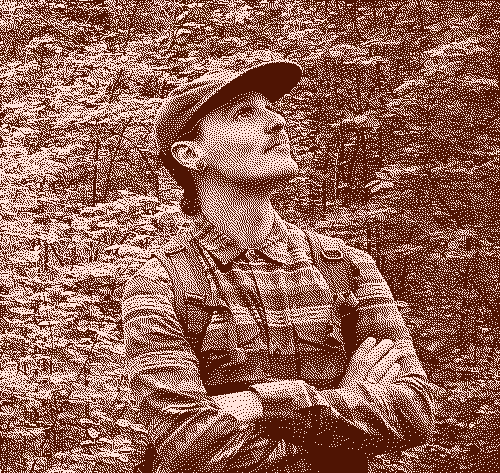
My name is Chris Oram. As you'd expect, I'm a former software developer, tech lead, architect, 'head of', advisor to 'C' people and overall digital maker for too many years (15+ if you want a quant). I provide tech strategy, capability development and software to those who care about the environment.
I've made tech stacks and cultivated teams for public and private sectors spanning finance, media, retail, food, education, government, socialcare, healthcare and deathcare (yep, that's a real thing). I've been trusted by well known mega corps. But now I help small teams to do more with less.
Tech is not neutral. How we intentionally apply it, matters. I advocate for sustainable engineering, post-growth/degrowth/coop models, local-first software and fostering FOSS.
I write a newsletter called spored that puts a lens on biodiversity software. If you'd like to read more about me, here is my personal site.
When not strategising, developing or hitting a keyboard I can be found home steading, rambling or running outdoors 🌲🌲🌲.